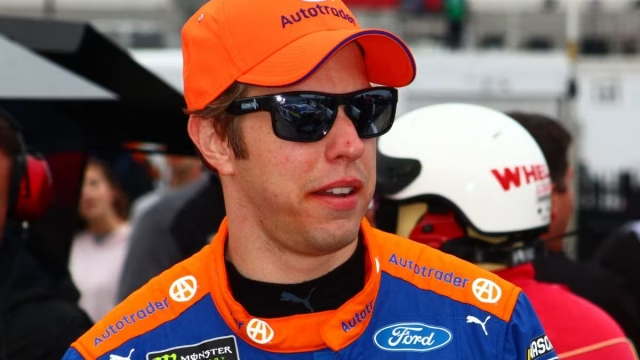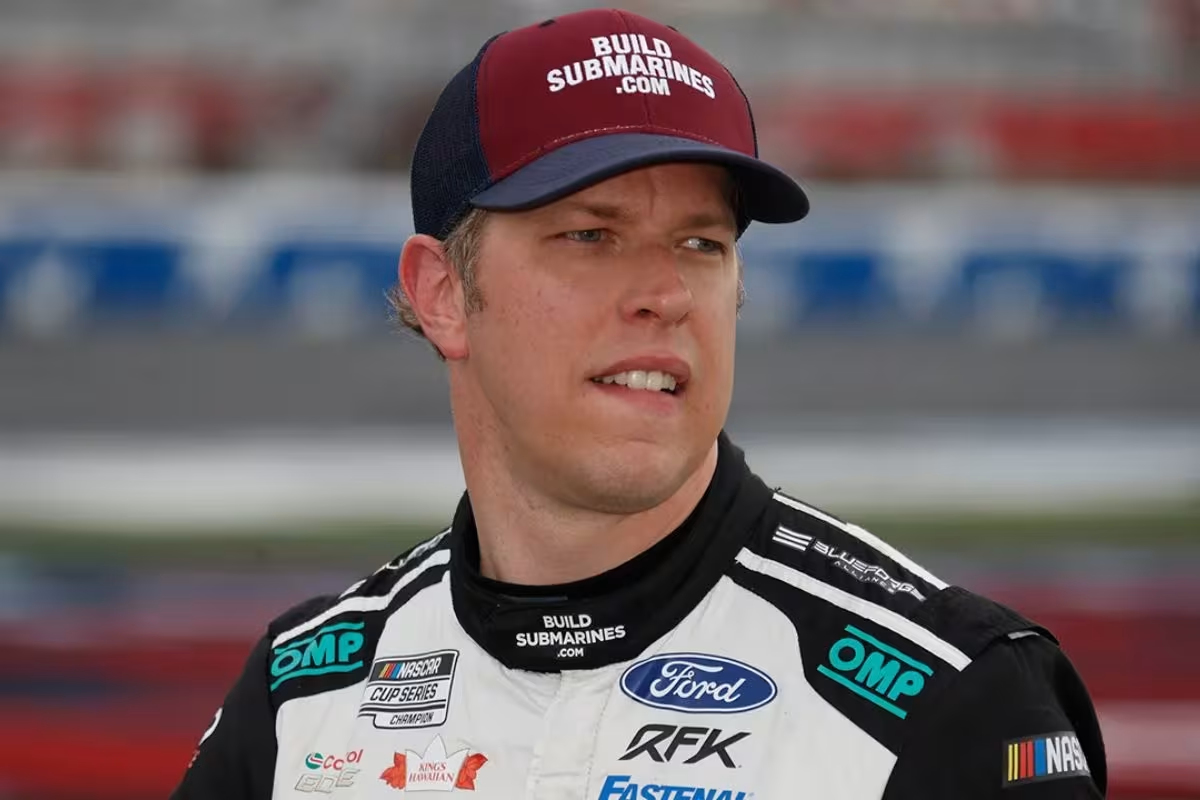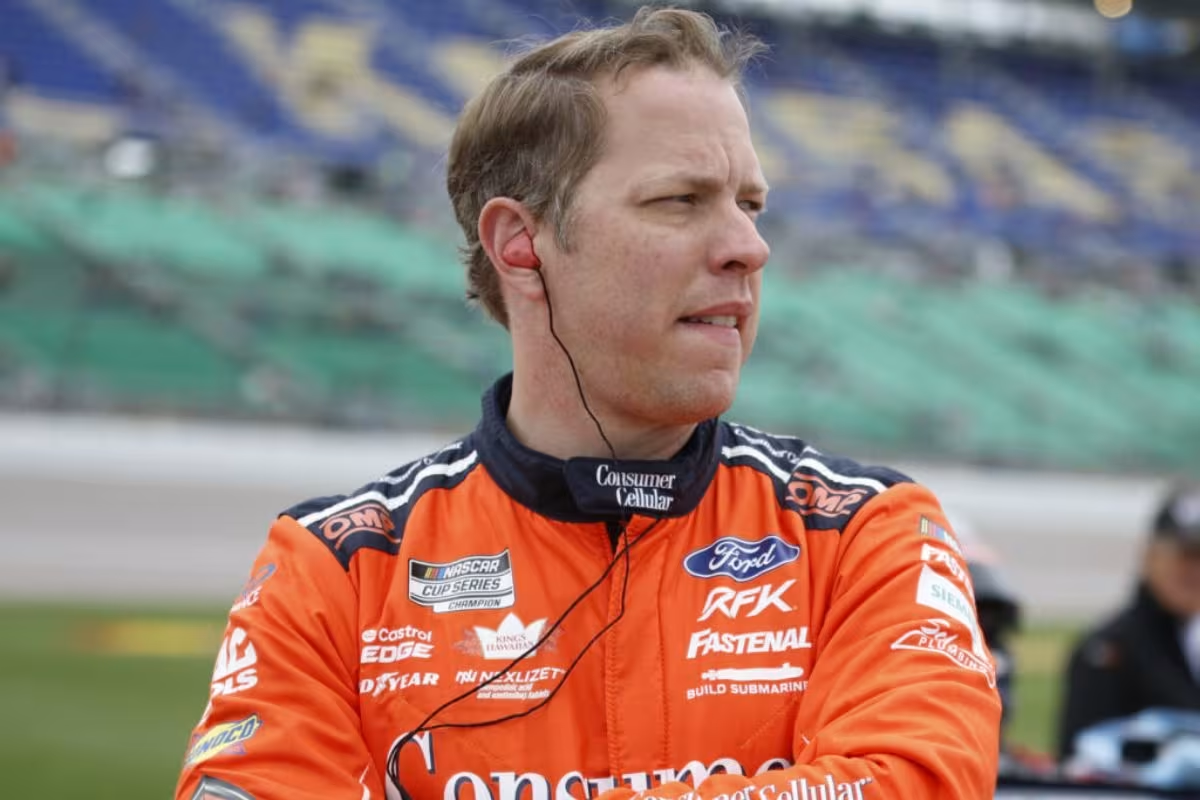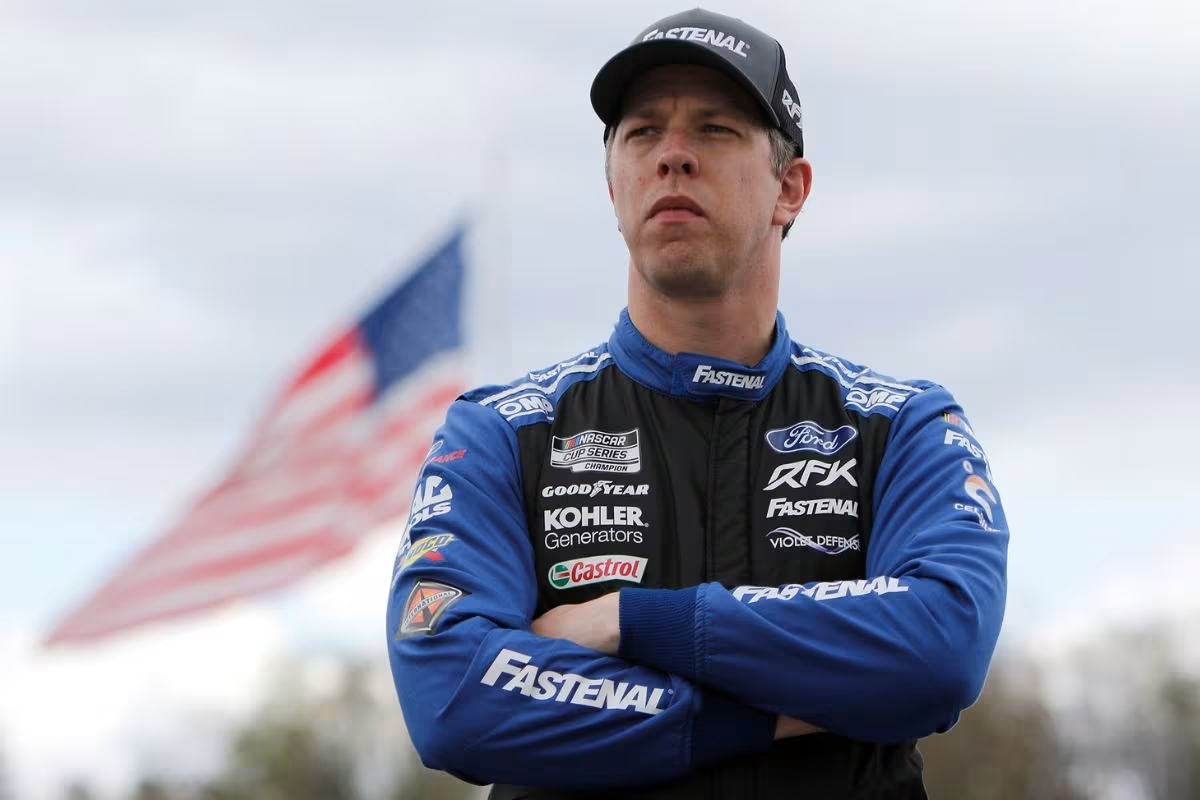Brad Keselowski’s Plea for Unity: A legal storm is building in NASCAR as 23XI Racing and Front Row Motorsports sue the main governing body, accusing it of monopolistic behavior. Amid this chaos, some key figures, like Brad Keselowski, are calling for teamwork and growth within the sport. What’s really behind this bold action, and how could it change NASCAR’s future?
Key Highlights
- Brad Keselowski emphasizes the importance of unity and harmony within the NASCAR community amid ongoing legal disputes.
- He expresses a desire for the industry to focus on constructive initiatives rather than conflicts.
- Keselowski advocates for collaboration and shared growth among stakeholders to enhance NASCAR’s future.
- He views the current lawsuit as an opportunity to reassess strategies for the sport’s longevity and innovation.
- His perspective aligns with a broader sentiment among team owners seeking to avoid distractions from racing.
Overview of the Lawsuit and Teams Involved
The lawsuit initiated by 23XI Racing and Front Row Motorsports against NASCAR represents a pivotal moment in the sport’s governance, challenging the long-standing dynamics between teams and the sanctioning body. This legal action arises from allegations that NASCAR operates as a monopoly, stifling competition and limiting the operational freedoms of the teams involved. The plaintiffs, both notable entities within the NASCAR framework, are positioning themselves not merely as aggrieved parties but as catalysts for systemic change.
After two years of talks with little progress, tensions have hit a breaking point, leading to this lawsuit. The plaintiffs are pushing for a preliminary injunction next week, showing how urgent they think the issue is. This legal move forces NASCAR to respond within two weeks, setting up what could be a major legal battle that might change the sport’s future.
The strange circumstances leading up to the lawsuit, including the unusual signing of a final proposal by 13 teams, suggest a fractured coalition among participants in the NASCAR ecosystem. As this legal process unfolds, it will not only test the resolve of the involved parties but also challenge the fundamental principles underpinning NASCAR’s governance.
Brad Keselowski’s Position
In the midst of the escalating tensions surrounding the lawsuit against NASCAR, Brad Keselowski has articulated a perspective that highlights unity and growth within the sport.
As a co-owner and driver for RFK Racing, Keselowski has chosen to distance his team from the ongoing legal proceedings, emphasizing a desire for harmony rather than conflict. His approach reflects a broader sentiment within the NASCAR community, which is increasingly wary of the distractions that legal disputes can create.
When asked about his hopes for the lawsuit’s outcome, Keselowski expressed a singular wish: “I just want peace.”
“I just want peace. What I want is for our entire industry to become laser-focused on growing the sport and to have incentives that connect to where we all win when that happens.” – brad
This statement emphasizes his belief that the industry should redirect its focus toward constructive initiatives that promote the sport’s growth. For Keselowski, the ideal outcome is not merely a resolution to the lawsuit but rather an opportunity for stakeholders to align their efforts in a way that benefits the entire NASCAR ecosystem.
Keselowski’s Focus on Growth
Growth remains a central theme for Brad Keselowski as he navigates the complexities surrounding NASCAR’s evolving landscape. In the context of a lawsuit that could alter the very fabric of the sport, Keselowski highlights the importance of cultivating a robust and sustainable future for NASCAR. His commitment to growth comes not from a place of rebellion but from a genuine desire to improve the sport as a whole, distancing himself from any conflicts.
Keselowski articulates a clear vision for the sport’s advancement, which includes:
- Collaboration: Building alliances among stakeholders to create a unified front focused on progress.
- Innovation: Embracing new technologies and ideas that promote fan engagement and enrich the racing experience.
- Inclusivity: Expanding outreach efforts to attract a diverse audience and guarantee that motorsports appeal to a broader demographic.
As co-owner of RFK Racing, he acknowledges the challenges posed by the ongoing legal dispute but remains resolute in his mission.
“Always going to be fighting for a piece of the pie,” he notes, yet he highlights the necessity of collective growth over individual gain.
“That’s open to a thousand different ways of interpretation. Always going to be fighting for a piece of the pie, the reality is we want to grow the sport as a whole. I know that’s where my head’s at. I can’t control anything else that happens outside my own world, but I can do whatever small part possible to grow NASCAR and motorsports as a whole. That’s where my focus is.” – brad
Brad Keselowski on the 23XI/FRM lawsuit against NASCAR and what he would like to see come out of it: pic.twitter.com/i7gJlIBy4h
— Bob Pockrass (@bobpockrass) October 5, 2024
The lawsuit, while potentially disruptive, presents an opportunity for re-evaluation and revitalization of NASCAR’s strategies. Keselowski’s focus embodies a forward-thinking mindset that prioritizes the sport’s longevity and relevance in an increasingly competitive entertainment landscape.
2025 Charter Agreement
Navigating the complexities of NASCAR’s current landscape requires not only a vision for growth but also adherence to the newly established charter agreements. The 2025 charter agreement has imposed considerable restrictions on team owners, including Brad Keselowski and his RFK Racing team, who find themselves unable to join the anti-trust lawsuit against NASCAR initiated by 23XI Racing and Front Row Motorsports. This limitation highlights the contentious nature of the current environment, where the stakes are high, but options appear limited.
Keselowski’s expression of being “happy” with the agreement may reflect a pragmatic acceptance of the realities faced by team owners. The nature of the deal presented by NASCAR was reportedly a glaring “take-it or leave-it” proposition, indicating a lack of negotiation power for the teams involved. The potential revocation of charters if they declined to sign emphasizes the uncertain position of participants within the sport.
In signing the charter agreement, Keselowski articulated a commitment to the long-term viability and success of NASCAR, emphasizing the importance of stability for his organization. His statement about having “great plans for the sport” suggests a forward-thinking approach, despite the restrictive nature of the current agreements.
“We want to run NASCAR for a long time to come and signing the charter agreement is a statement to our commitment to doing just that. We’ve got great plans for the sport and excited to see that continue on for quite some time.” – brad
Richard Childress’ Perspective
Richard Childress, a veteran team owner in NASCAR, faced a pivotal moment as he navigated the pressures of the recent charter agreement.
With a midnight deadline imposed by NASCAR, Childress and his peers were compelled to sign the multi-year charter extension or risk losing their charters—assets valued between $30 and $50 million. The stakes were undeniably high, and the urgency left many owners with little choice but to conform to the demands set forth by the sanctioning body.
“We didn’t have a choice to sign them. It was just, ‘You sign it or you lose your charters.’ I couldn’t take that gamble, period. And I know a lot of owners I talked to felt the same way. I’ll put it like this: If you want to race, you race in their park if you want to race NASCAR.” – Childress
The new agreement, while promising a sizable influx of funds due to NASCAR’s lucrative media deal, failed to meet key demands, particularly the call for permanent charters to safeguard long-term investments.
Key points from Childress’ perspective include:
- Pressured Compliance: Owners felt coerced into signing the agreement due to the looming threat of losing their charters.
- Financial Stakes: The substantial value of charters made the decision to sign a risk-laden necessity.
- Unfulfilled Demands: Despite increased funding, critical requests for permanence in charters were left unaddressed.
News in Brief: Brad Keselowski’s Plea for Unity
The ongoing lawsuit within NASCAR highlights considerable tensions among teams and stakeholders, with Brad Keselowski advocating for stability and collaborative growth. His emphasis on the 2025 Charter Agreement reflects a broader desire to promote unity in the sport. Richard Childress’s perspectives further illuminate the complexities of team dynamics and financial interests. Ultimately, achieving peace and constructive dialogue will be vital for the future of NASCAR, ensuring the sport’s evolution aligns with the interests of all parties involved.
ALSO READ: Brad Keselowski’s Bristol Nostalgia Sparks Outrage: Fans Split Over Track’s Future



